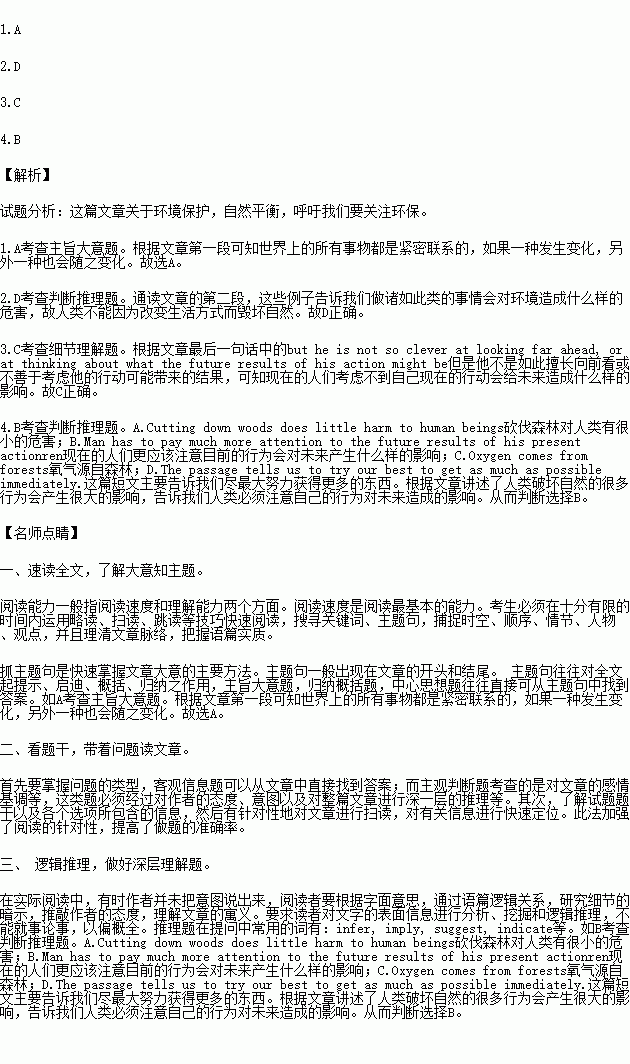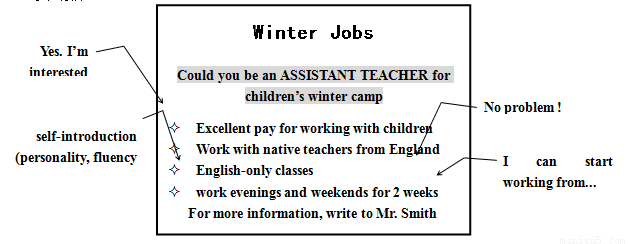题目内容
It is only during the last few years that man has generally realized that in the world of nature a balance exists between all forms of life. No living thing can exist by itself. It is part of a system in which all forms of life are joined together. If we change one part of the nature order, this will almost certainly bring about changes in some other part.
The cutting of forests reduced the supply of oxygen. The killing of weeds and insects by chemicals led to the wide-spread poisoning of animals and birds. The throwing of waste products into the ocean hurt life in the sea, while waste gases changed the chemical balance of the atmosphere and shut out some of the sun’s necessary life-giving rays.
And so we could go on adding more examples until in despair(绝望) we might feel like giving up the struggle to control these harmful human activities. Man is very clever at changing the world around him to satisfy his immediate needs, but he is not so clever at looking far ahead, or at thinking about what the future results of his action might be. Man may well destroy himself because of his silly action.
1.The first paragraph tells us that _____.
A. all living things in nature depend on each other
B. everything in nature can’t exist without the help of man
C. man has known the importance of the balance of nature for a long time
D. no living thing can live naturally
2.In the second paragraph the examples given are used to prove that _____.
A. all forms of life belong to a system in which all the parts can be changed for one another
B. it is only during the last few years that man has generally known the balance of nature
C. there are some living things which can exist by themselves without change
D. we can’t change one form of life without destroying the balance of nature
3.The last paragraph suggests that in order to get his immediate benefits(利益) _____.
A. man is always anxious to control his activities within limits
B. man is always too eager in planning for distant future
C. man often fails to think about their future results of his action
D. man often feels that he will have to give up in despair
4.Which of the following is true according to the passage?
A. Cutting down woods does little harm to human beings.
B. Man has to pay much more attention to the future results of his present action.
C. Oxygen comes from forests.
D. The passage tells us to try our best to get as much as possible immediately.



 ve it,” he insists.
ve it,” he insists.